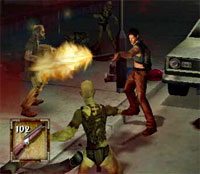 The New Scientist is reporting that US researchers have discovered a brain mechanism that may link violent computer games with aggression.
The New Scientist is reporting that US researchers have discovered a brain mechanism that may link violent computer games with aggression.
Although not conclusive, the study suggests a causal link between virtual and real world aggression.
Previous studies have concluded that violent video game players are “more aggressive, more likely to commit violent crimes, and less likely to help others”, but critics argue that this just shows that violent people gravitate towards violent games, so the games aren’t responsible for turning little Timmy into Ivan the Terrible.
A team led by Psychologist Bruce Bartholow from the University of Missouri-Columbia discovered that fraggers show diminished brain responses to images of real-life violence, such as gun attacks, but not to other emotionally disturbing pictures, such as those of dead animals, or sick children.
 Bartholow argues that this reduction in response is correlated with aggressive behaviour.
Bartholow argues that this reduction in response is correlated with aggressive behaviour.
Employing technology so advanced that mere mortals wouldn’t even know how to plug it in, the team measured a brain activity called the P300 response, which is the characteristic signal seen in an EEG (electroencephalogram) recording of brain waves as we see an image (like us, you already knew that, didn’t you?)
This P300 response whats-it reflects an evaluation of the emotional content of an image, so the bigger the response, the more people are surprised or disturbed by an image. Novel scenes also register a big response.
 The team shipped in a crew of 39 gamers, and quizzed them on the amount of violent games they played, before being shown a series of neutral images interspersed with occasional violent or negative (but non-violent) scenes, while sensors recorded their EEGs.
The team shipped in a crew of 39 gamers, and quizzed them on the amount of violent games they played, before being shown a series of neutral images interspersed with occasional violent or negative (but non-violent) scenes, while sensors recorded their EEGs.
The full-on fraggers with the most experience of violent games were then found to register a smaller and delayed P300 response to the violent images.
“People who play a lot of violent video games didn’t see them as much different from neutral,” says Bartholow, with the research finding that although desensitised to such scenes, their responses were still normal for the non-violent negative scenes.
Although this may not exactly be big news – video games have been used to desensitise soldiers to scenes of war – players with the greatest reduction in P300 brain responses were found to dish out the severest “punishments” against fake opponents in another game.
 Throughout the tests, the violent games experience and P300 response were still strongly correlated with aggressiveness.
Throughout the tests, the violent games experience and P300 response were still strongly correlated with aggressiveness.
“As far as I’m aware, this is the first study to show that exposure to violent games has effects on the brain that predict aggressive behaviour,” says Bartholow.
Not everyone is convinced though, with Jonathan Freedman, a psychologist from the University of Toronto commenting, “We habituate to any kind of stimulus. All we are really getting is desensitisation to images. There’s no way to show that this relates to real-life aggression.”
 Freeman also added that stopping people playing violent video games would be like banning them from playing sports such as football or hockey.
Freeman also added that stopping people playing violent video games would be like banning them from playing sports such as football or hockey.
The work will appear early in 2006 in the Journal of Experimental Social Psychology.
 The Next Revolution Is Here… Or Is It?
The Next Revolution Is Here… Or Is It? Sony have launched the PSP Media Manager for the PlayStation Portable, an iTunes-like application designed to make it easy to shunt music, movies, photos and other content off a PC and onto PSPs and synchronise PC content with the PSP.
Sony have launched the PSP Media Manager for the PlayStation Portable, an iTunes-like application designed to make it easy to shunt music, movies, photos and other content off a PC and onto PSPs and synchronise PC content with the PSP.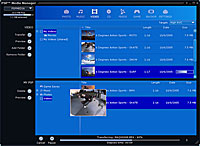 Supported image formats include .bmp, .jpg, .gif, .png, and .tif, with a bundled utility to backing up game saves to the PC.
Supported image formats include .bmp, .jpg, .gif, .png, and .tif, with a bundled utility to backing up game saves to the PC. The boxed version containing the USB lead and five free song downloads will be available form Sony’s Connect music from November 22 for $29.95 (~£17, ~e24), with the downloadable version already available (clearly without the USB lead – matter transfer via the Internet is being worked on) from the official Sony Media Software site for $19.95 (~£11, ~e16.5).
The boxed version containing the USB lead and five free song downloads will be available form Sony’s Connect music from November 22 for $29.95 (~£17, ~e24), with the downloadable version already available (clearly without the USB lead – matter transfer via the Internet is being worked on) from the official Sony Media Software site for $19.95 (~£11, ~e16.5). The portable game business will be worth a thumping great $2.3 billion in four years, according to a report released today by research firm, The Yankee Group.
The portable game business will be worth a thumping great $2.3 billion in four years, according to a report released today by research firm, The Yankee Group. With the line between wireless handsets and portable CE devices continuing to blur, the Yankee Group used data from both their Video Capable Device Survey and the Mobile User Survey to come up with what they describe as “the most comprehensive view into the portable device market.”
With the line between wireless handsets and portable CE devices continuing to blur, the Yankee Group used data from both their Video Capable Device Survey and the Mobile User Survey to come up with what they describe as “the most comprehensive view into the portable device market.” The world of film and video games come ever closer as Electronic Arts (EA) team up with Steven Spielberg to develop three original video games.
The world of film and video games come ever closer as Electronic Arts (EA) team up with Steven Spielberg to develop three original video games.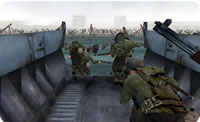 EA has been, how shall we say, “inspired”, heavily by The S before, as anyone who’s ever played the opening scene of the first Medal of Honor, and heard of a film called Saving Private Ryan may have noticed.
EA has been, how shall we say, “inspired”, heavily by The S before, as anyone who’s ever played the opening scene of the first Medal of Honor, and heard of a film called Saving Private Ryan may have noticed.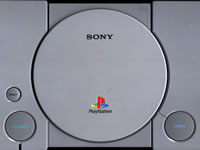 Sony’s Playstation has been awarded an Emmy for Outstanding Achievement in Technology and Advanced New Media for pioneering the 3D polygonal-based gaming experience, by the US National Academy of Television Arts and Sciences (NATAS).
Sony’s Playstation has been awarded an Emmy for Outstanding Achievement in Technology and Advanced New Media for pioneering the 3D polygonal-based gaming experience, by the US National Academy of Television Arts and Sciences (NATAS). You can imagine that the awarding of this will make steam come out of the ears of those on the Xbox team at Microsoft
You can imagine that the awarding of this will make steam come out of the ears of those on the Xbox team at Microsoft Is it only the cynical that would think that the timing of this award has anything to do with the wider entertainment business (read film) getting more closely involved with creation of film license games? Or even that they’ve finally woken up to the fact that the amount of money spent on video games out-sizes that spent on film.
Is it only the cynical that would think that the timing of this award has anything to do with the wider entertainment business (read film) getting more closely involved with creation of film license games? Or even that they’ve finally woken up to the fact that the amount of money spent on video games out-sizes that spent on film. Neat Idea!
Neat Idea! They’ve done it again
They’ve done it again It’s like the Middle Ages all over again!
It’s like the Middle Ages all over again! The Economist is a publication that we regard highly. It’s not for nothing that they gained a strong reputation. Sadly a recent piece on the Digital Home let them down.
The Economist is a publication that we regard highly. It’s not for nothing that they gained a strong reputation. Sadly a recent piece on the Digital Home let them down. This was repeated with halls and halls of identikit stands. Remove the brand names and it would have been a challenge to tell them apart.
This was repeated with halls and halls of identikit stands. Remove the brand names and it would have been a challenge to tell them apart. Where The Economist got it wrong #2 – MSMedia Centre PCs are a failure
Where The Economist got it wrong #2 – MSMedia Centre PCs are a failure After having made the UK wait nearly 9 months since the launch of the
After having made the UK wait nearly 9 months since the launch of the  Those UK’ers who couldn’t wait for the much-desired, multi-media device to arrive had an avenue closed to them after Sony successfully took legal action against grey-importers of Japanese and US equipment.
Those UK’ers who couldn’t wait for the much-desired, multi-media device to arrive had an avenue closed to them after Sony successfully took legal action against grey-importers of Japanese and US equipment.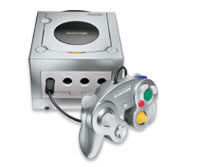 We’ve all known for a long time that TV as we knew-and-loathed-it was under pressure, as people discovered there were things more rewarding in their lives than passively sitting in a darkened room, being bathed in light from a box in the corner of the room, watching whatever the channel controller decided to ‘entertain’ them with.
We’ve all known for a long time that TV as we knew-and-loathed-it was under pressure, as people discovered there were things more rewarding in their lives than passively sitting in a darkened room, being bathed in light from a box in the corner of the room, watching whatever the channel controller decided to ‘entertain’ them with. In 2003 the BBC did some far more interesting research in this area. Of course they found that numbers of hours watched dropped, but what we found significant was that those hours that were being spent in front of the TV, weren’t dedicated to watching it.
In 2003 the BBC did some far more interesting research in this area. Of course they found that numbers of hours watched dropped, but what we found significant was that those hours that were being spent in front of the TV, weren’t dedicated to watching it.